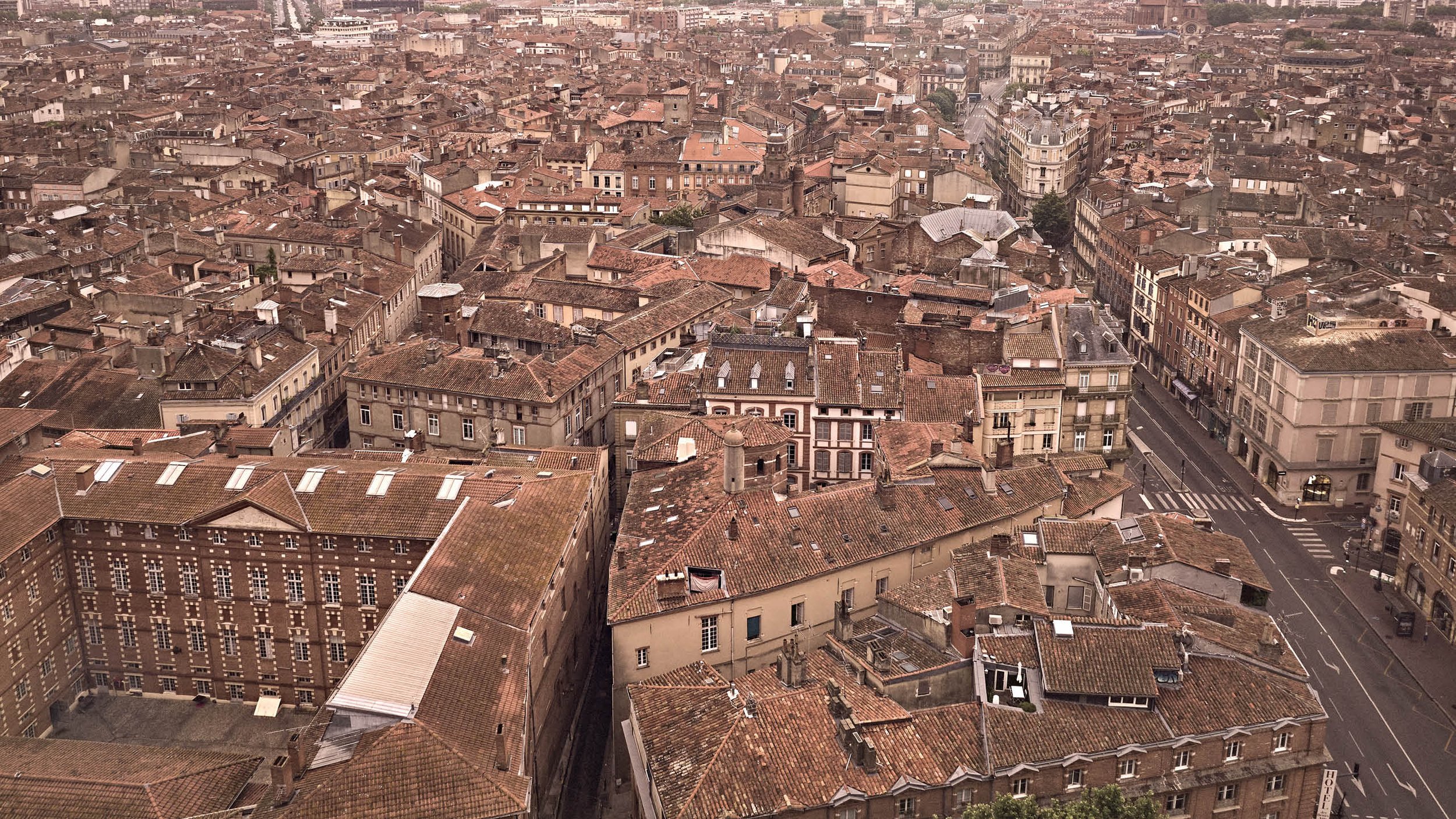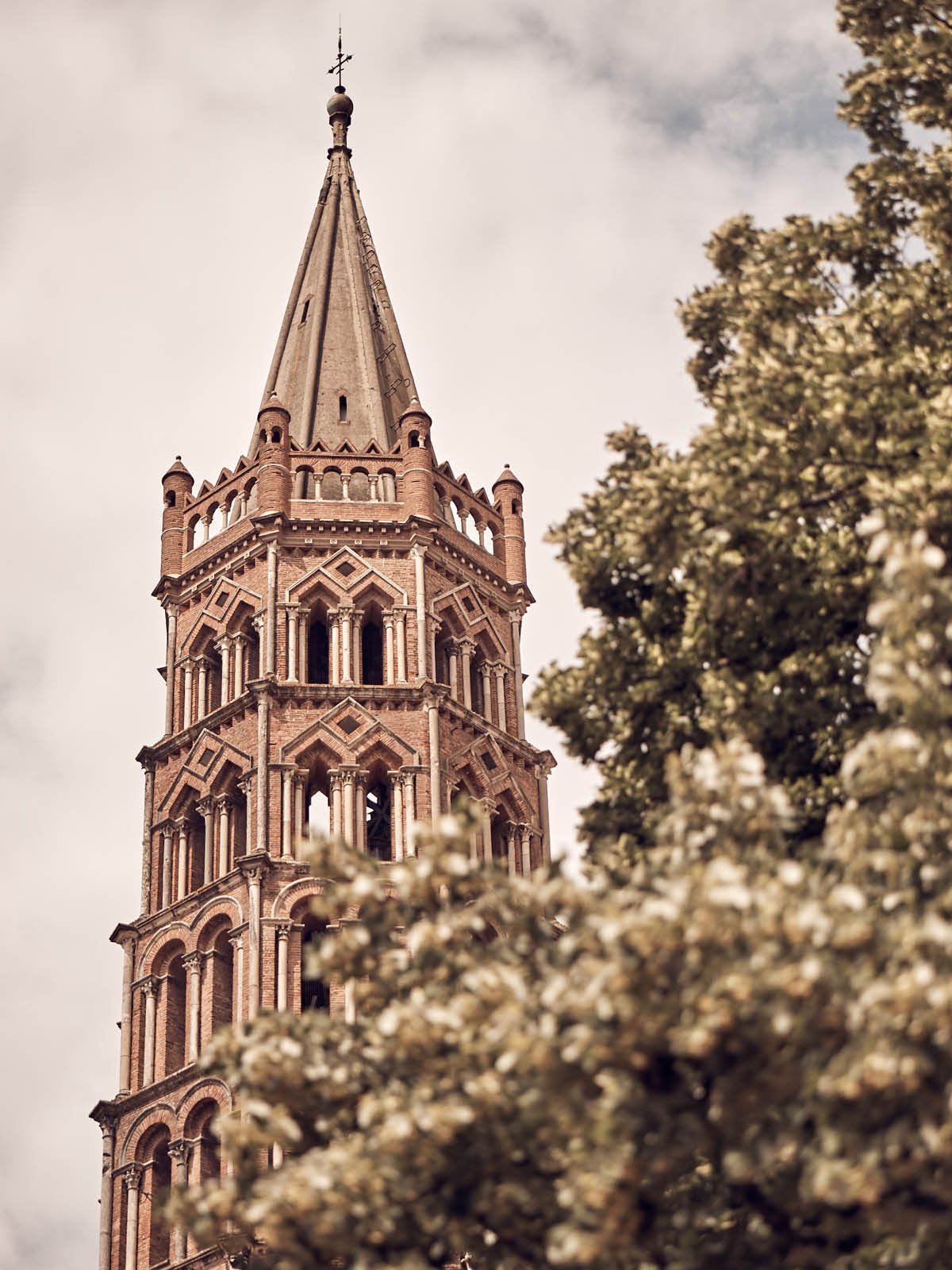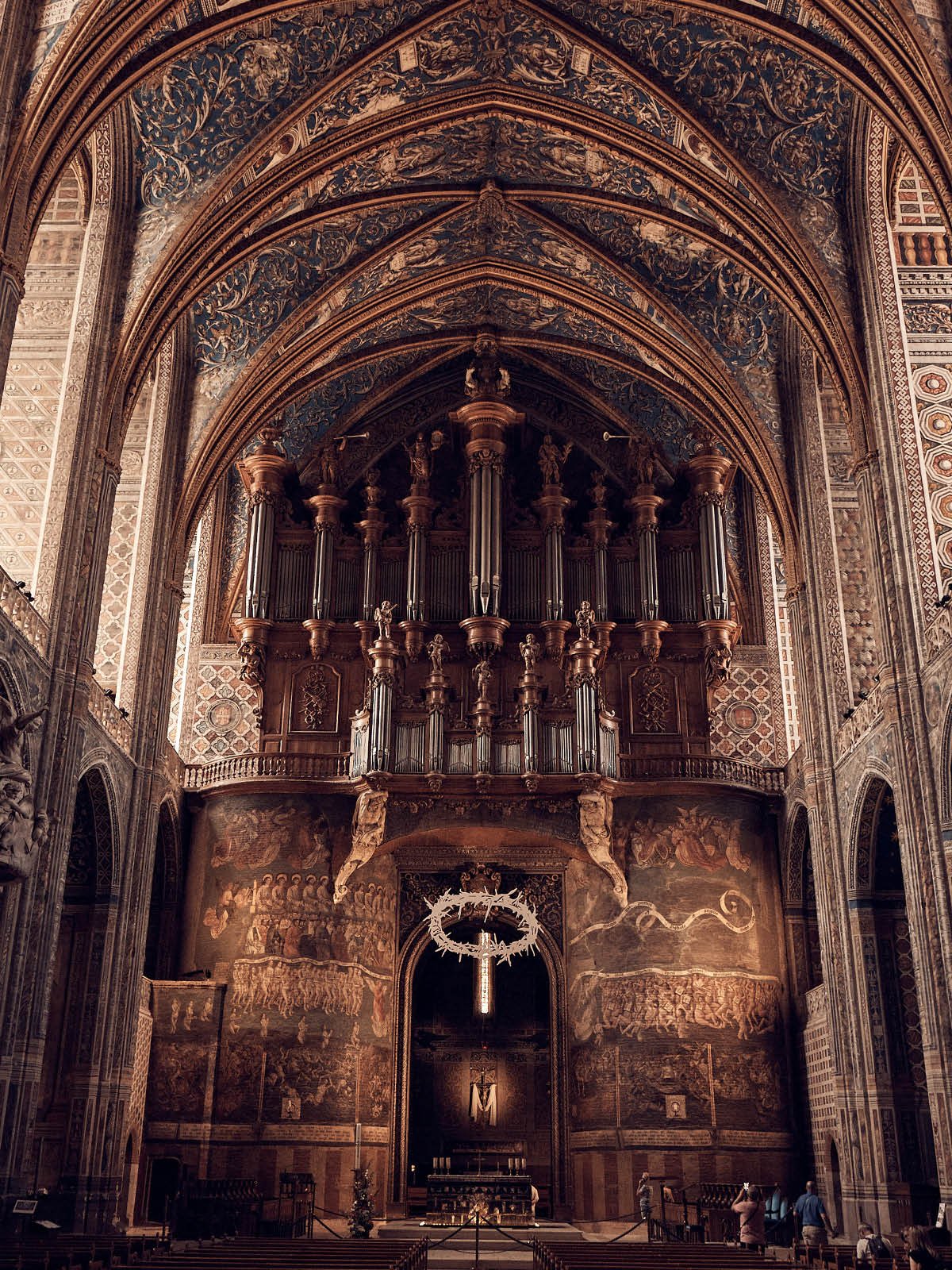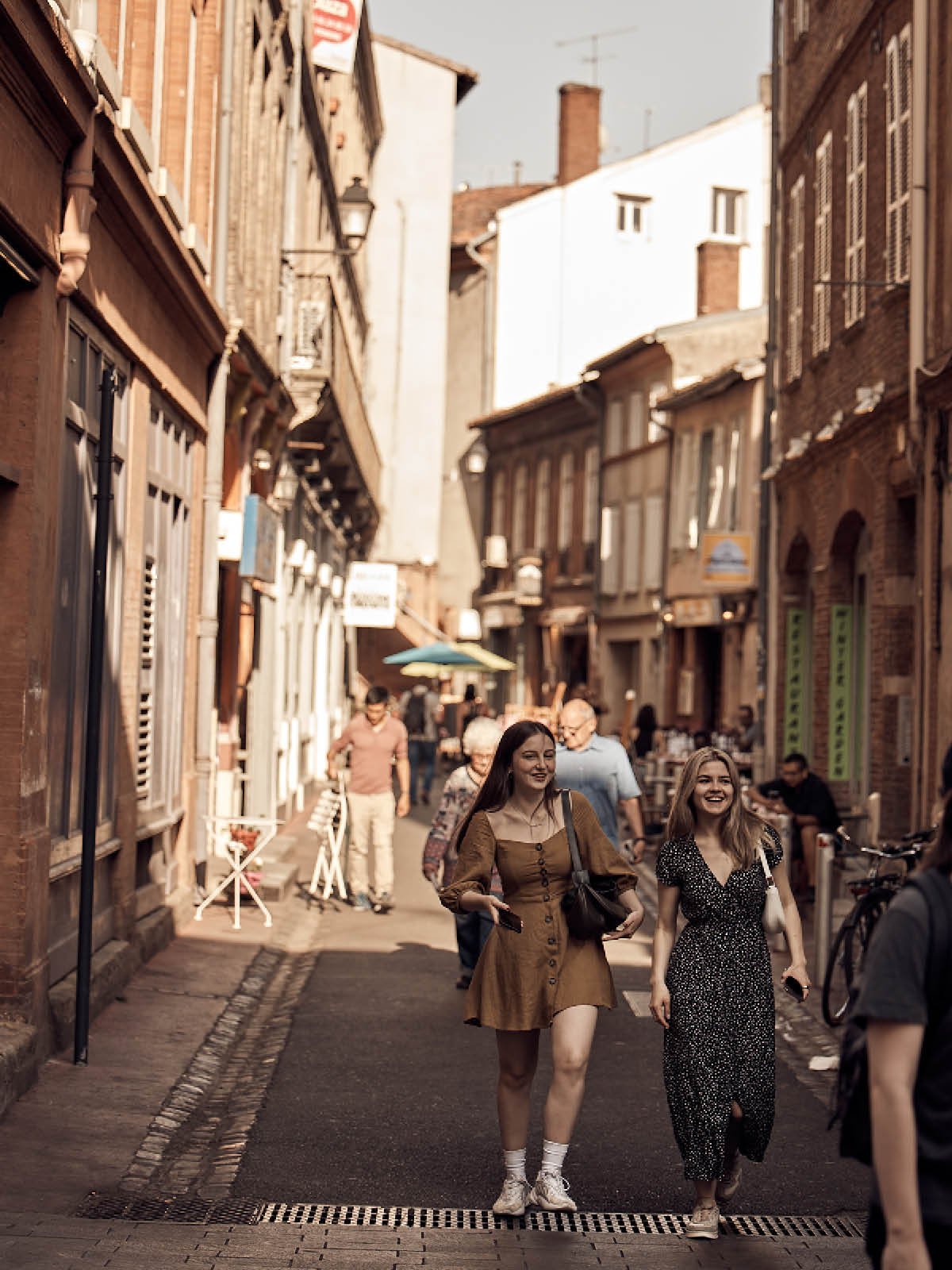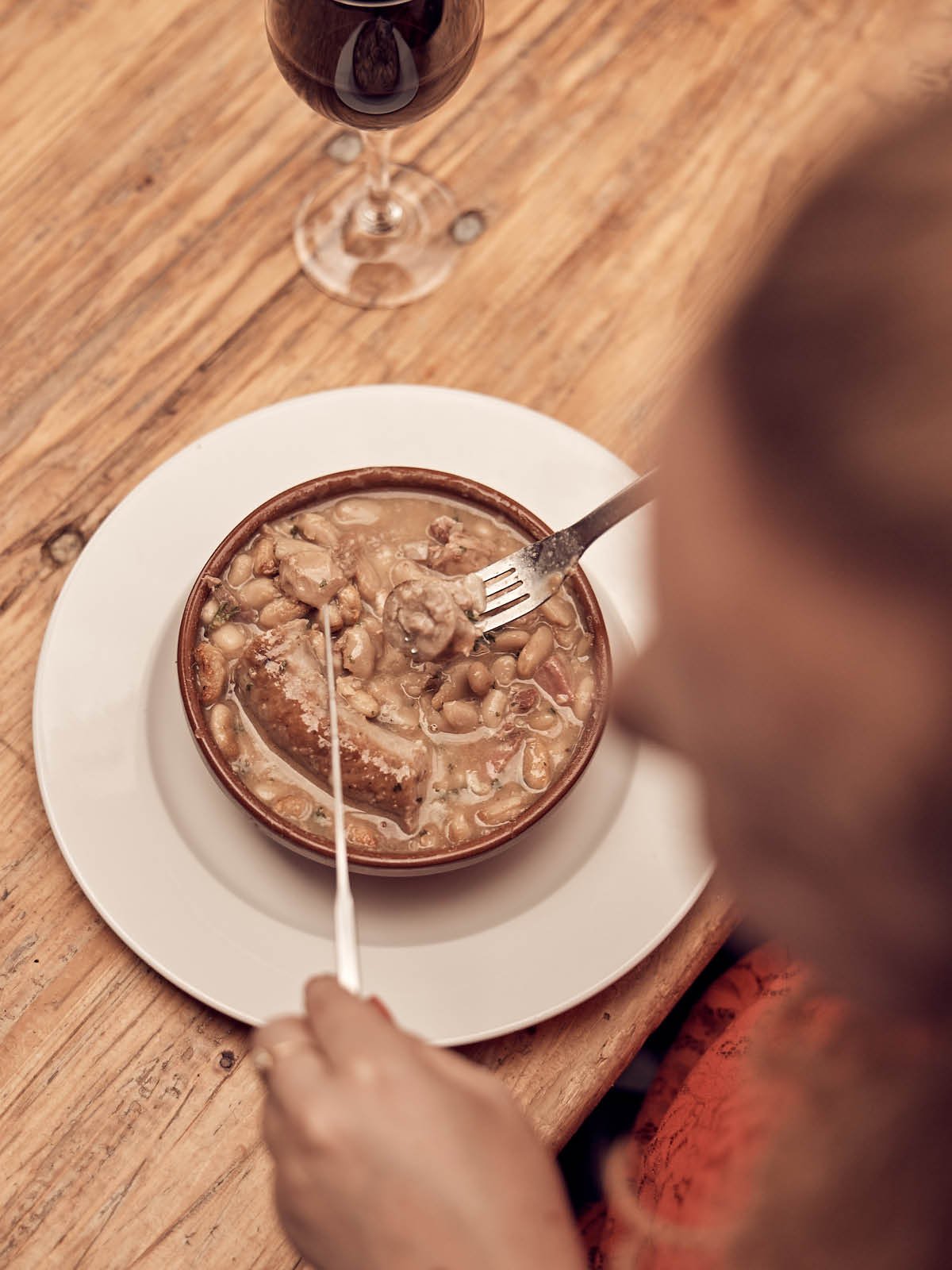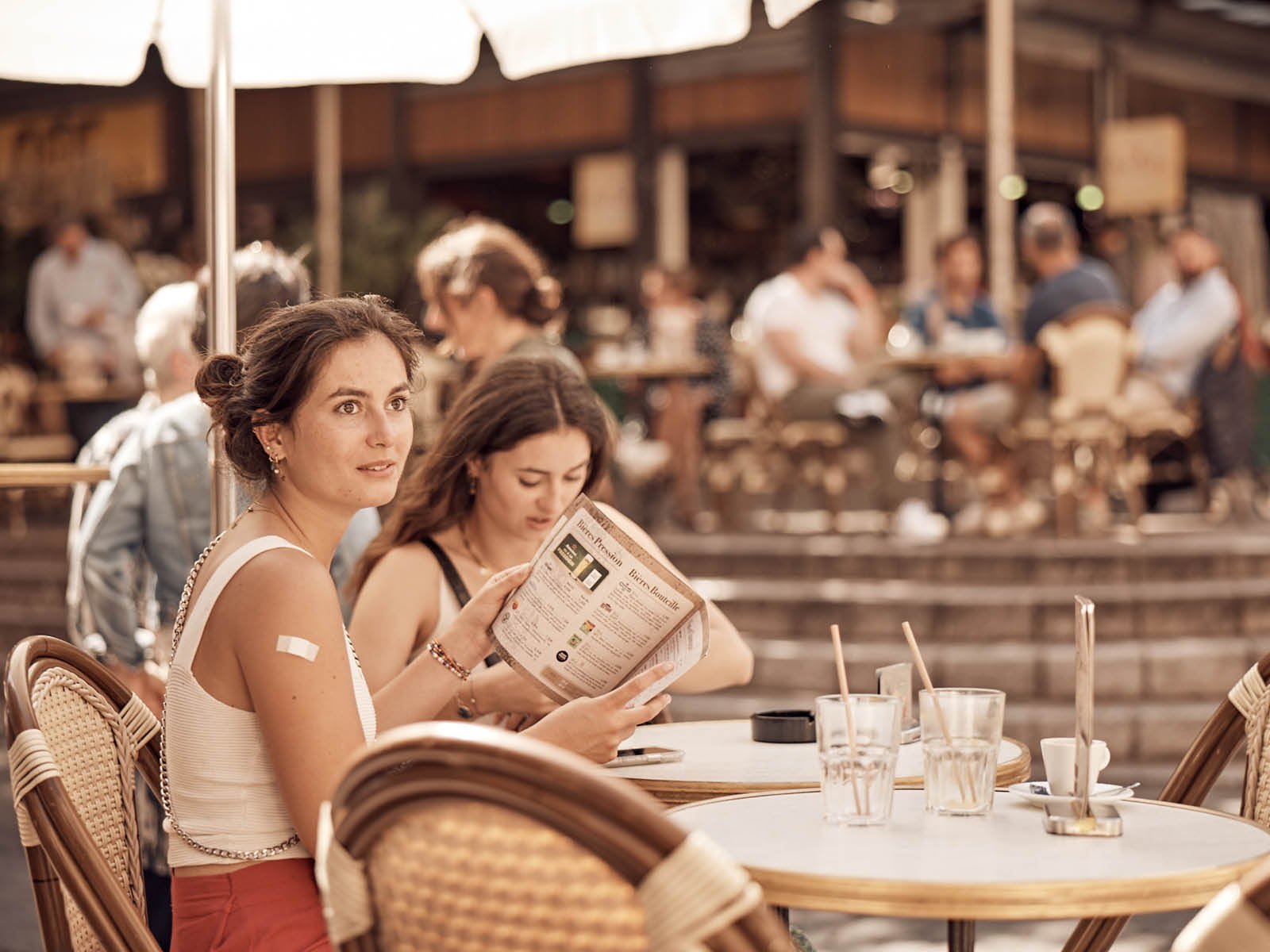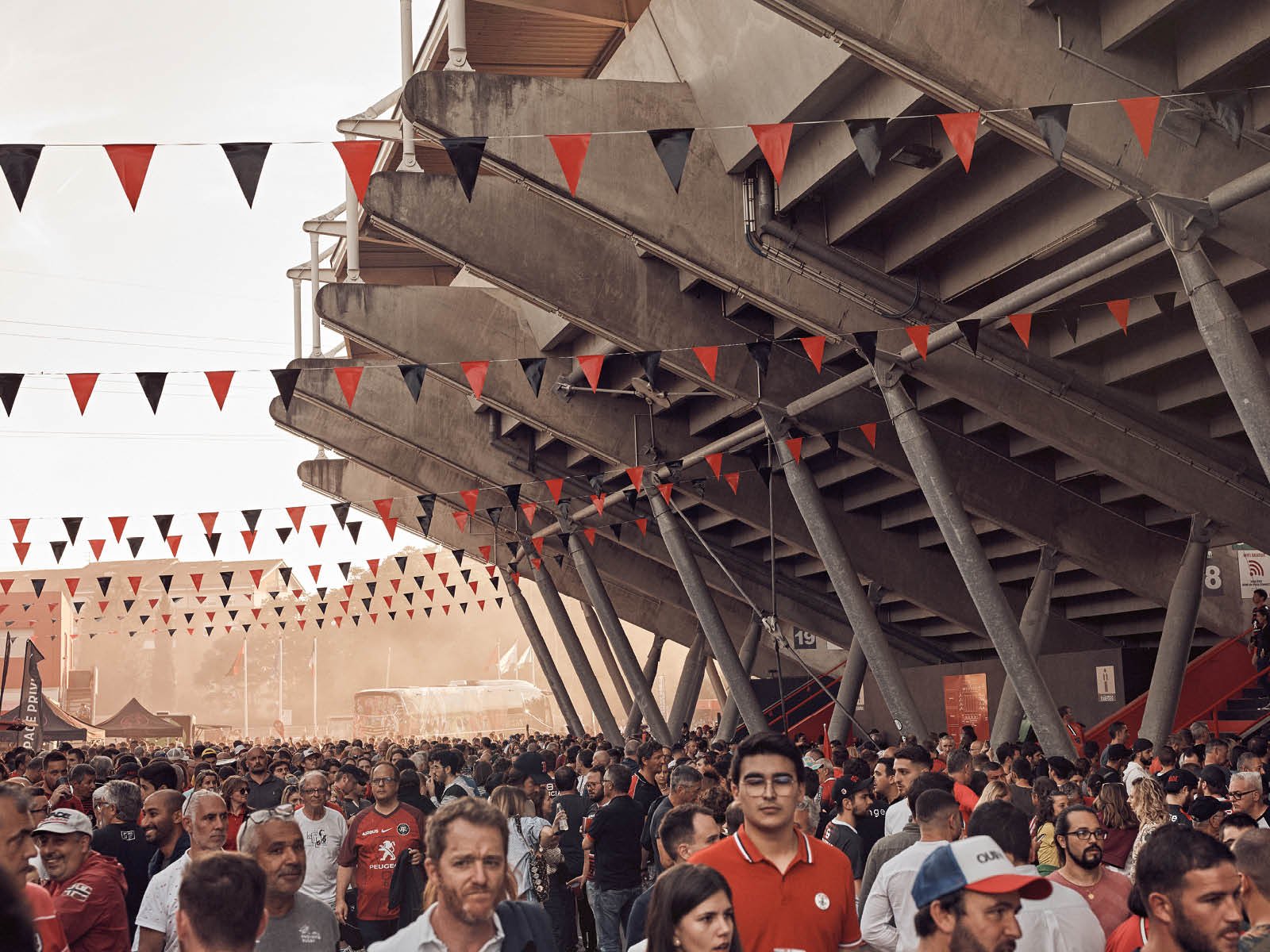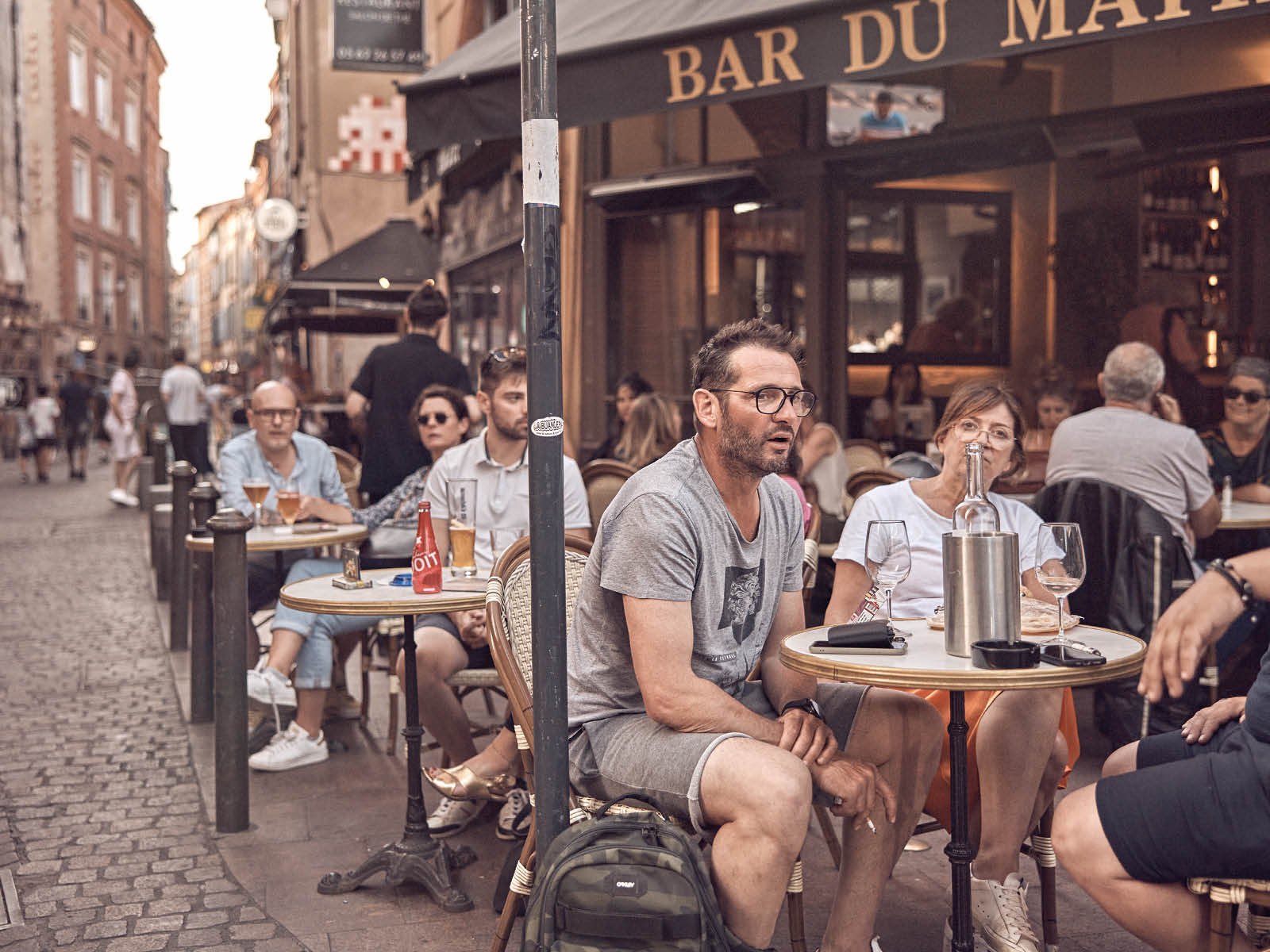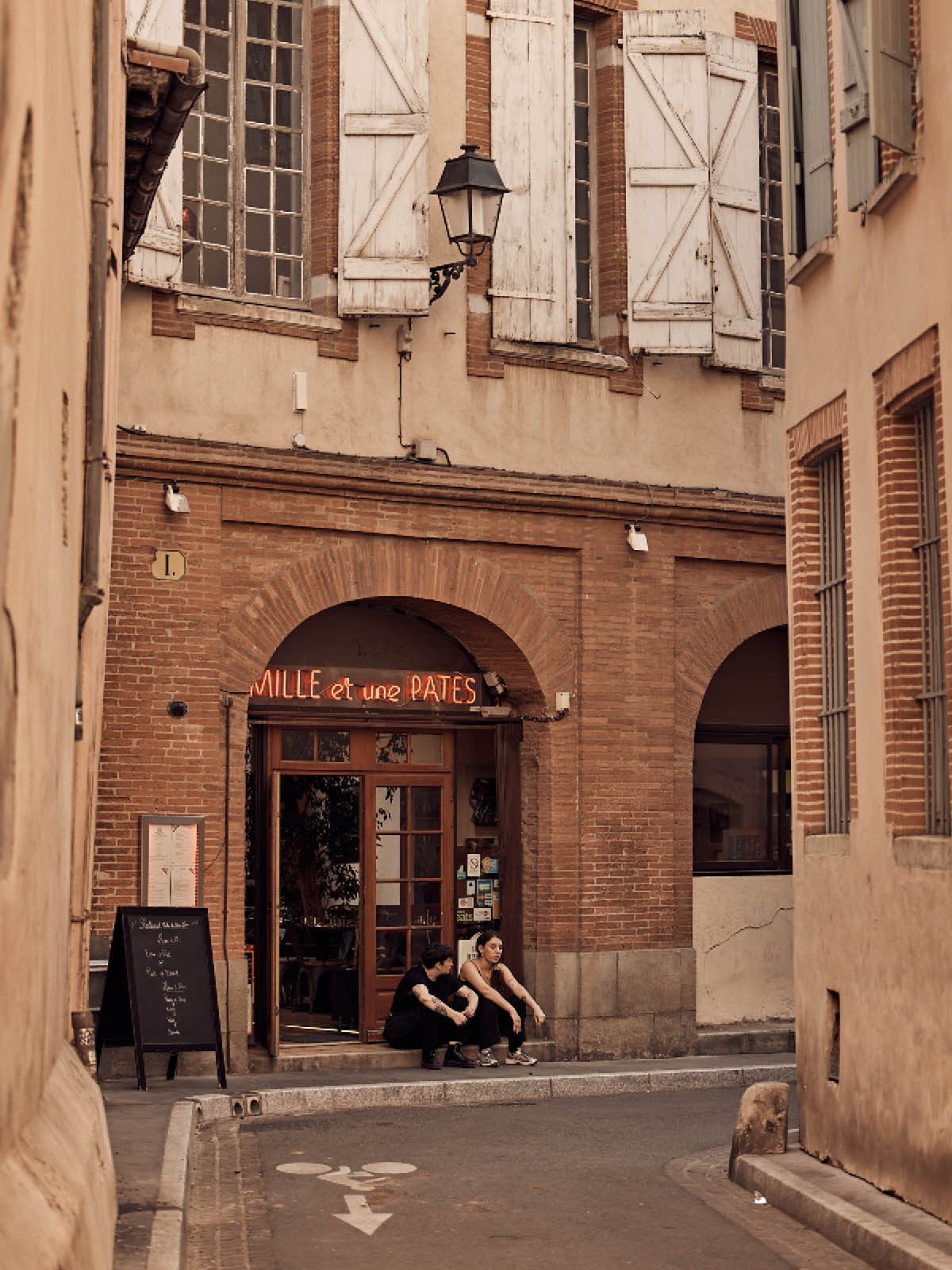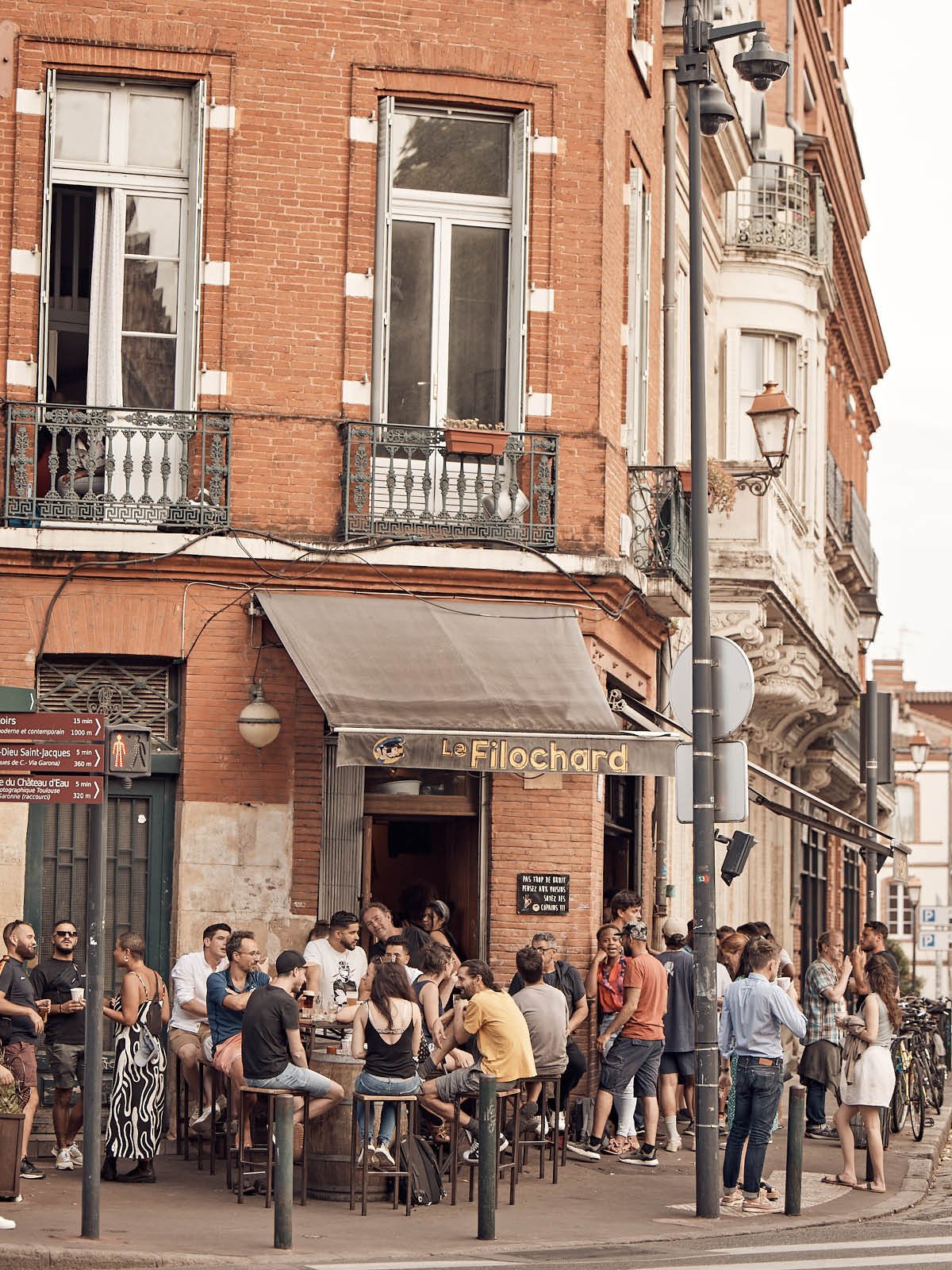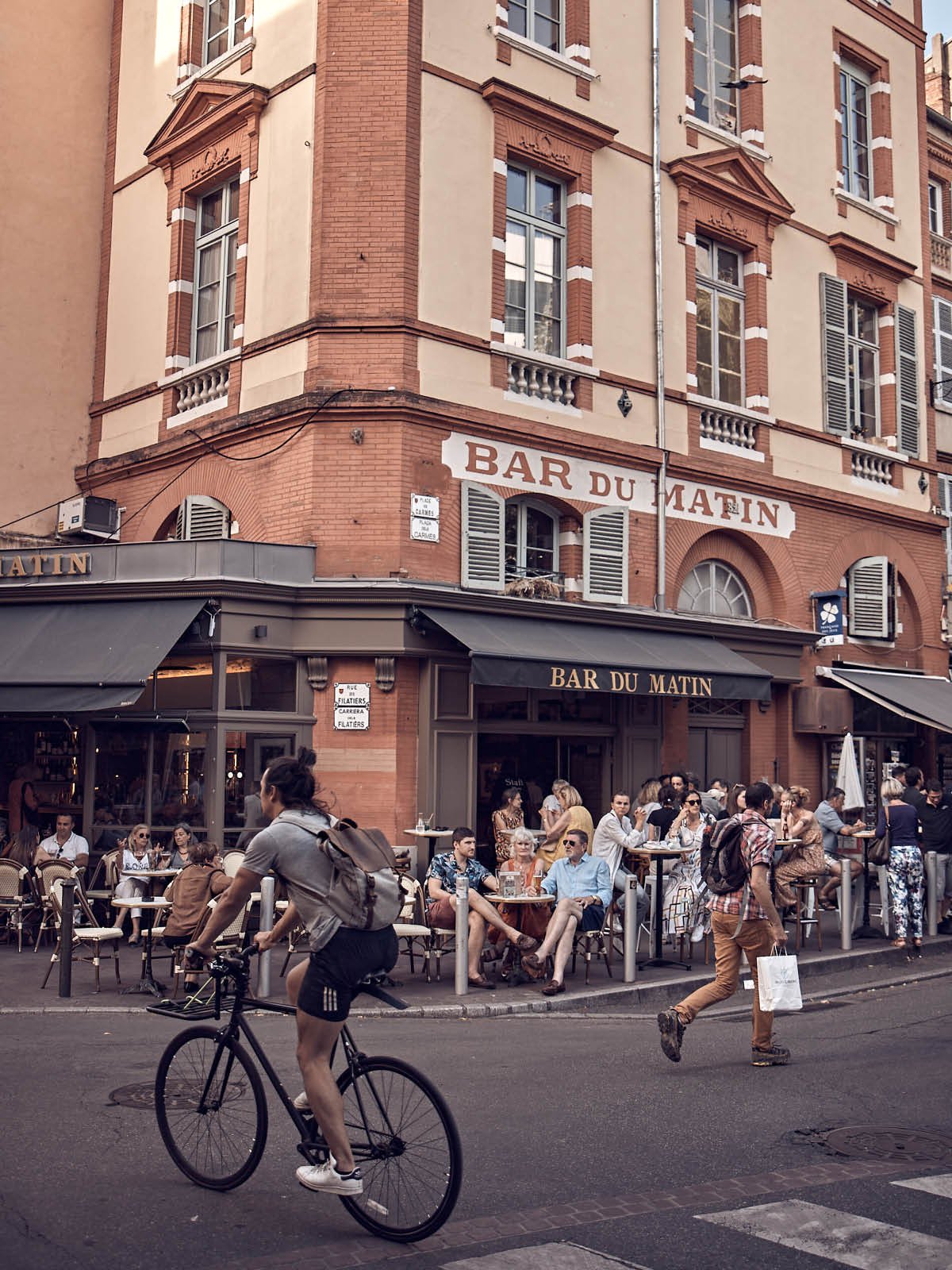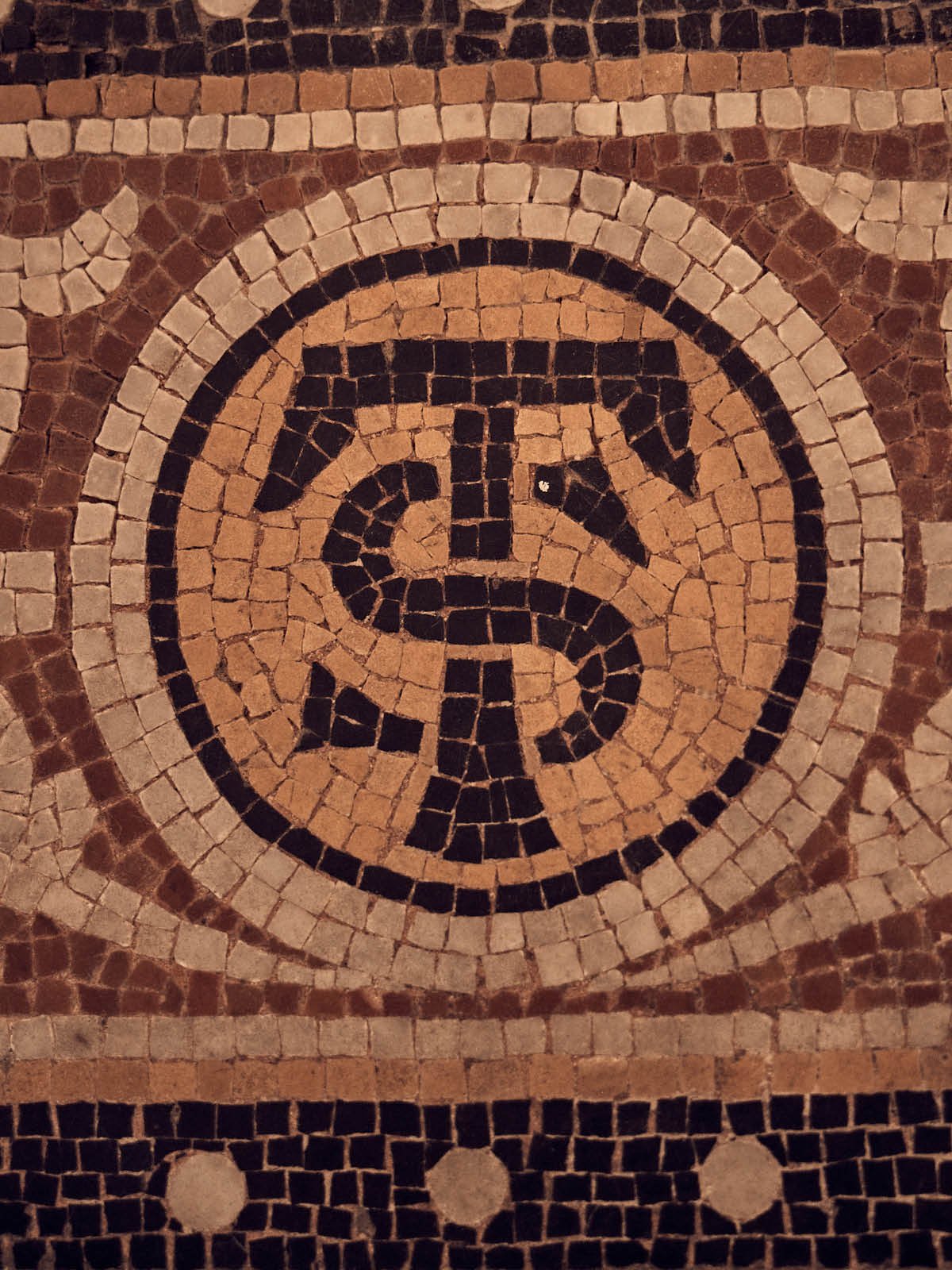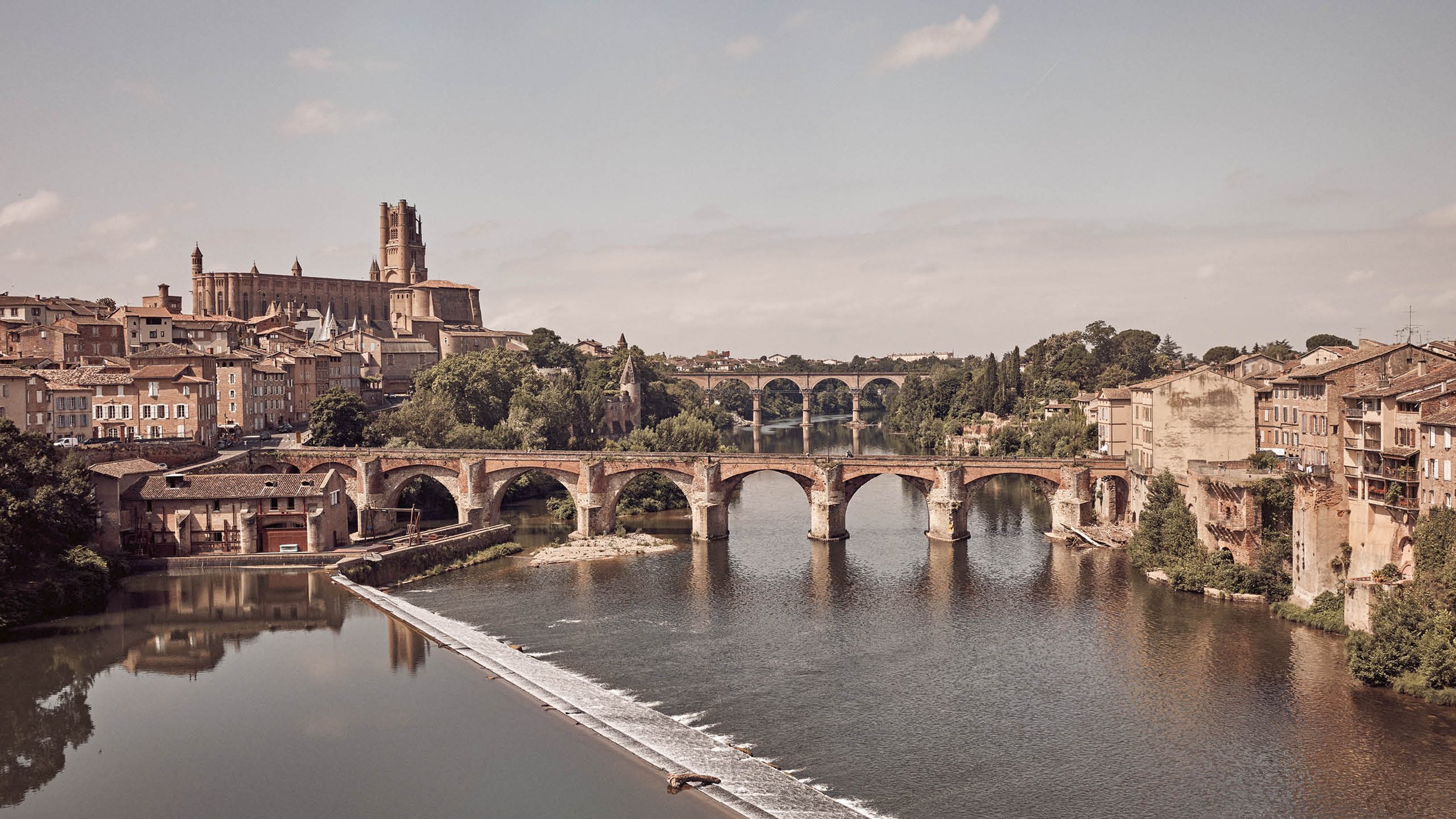Rugby Travel guide to Toulouse
Pilgrims of both the rugby and St James variety find their way to Toulouse in the backyard of the Pyrenees, and are met with a medieval city where maze-like streets are filled with stunning architecture, food markets to get lost in, Stade Toulousain fans at every turn, and duck. An awful lot of duck. This is what every visiting rugby needs to know about Toulouse, in south-west France.
What’s Toulouse like?
With Spain and Andorra close neighbours, the Mediterranean and Atlantic coasts within driving distance, and the Pyrenees in its backyard, Toulouse has everything going for it location wise, but the city itself is one to immerse yourself in. Known as the ‘Pink City’ due to the colours of the brick used in its tangle of streets, it sits alongside the Garonne River, and is resplendent with fine architecture, historic mansion townhouses 15th-century churches, former convents and ancient chapels.
A true rugby city, the black and red of its beloved Stade Toulousain (the colours which were first worn by the city’s medieval magistrates) are everywhere, and the food here is among the best in France. Famed for all things duck – foie gras with everything – the cassoulet and saucisse de Toulouse (Toulouse sausage) are box tickers, but there’s also plenty of modern French restaurants to go alongside the more casual bistro, and the wine is good wherever you go.
What are Toulouse’s claims fame?
Rugby is right up there, due to the incredible success of Stade Toulousain (five European cups and 21 Top 14 titles, at the time of writing), and the city’s centrepiece, Place du Capitole, will be familiar to rugby fans as where the team go to celebrate. Similarly, the duck, cassoulet and sausage is renowned; it’s also a stop off for pilgrims heading to Santiago de Compostela as they head to the UNESCO-protected Basilica of Saint-Sermin; and it’s the European home of aeronautics, with Concorde taking off from here for the first time in 1969. For rugby fans, Toulouse also hosts a leg on the Rugby Sevens Series as well as the unique Waterugby Festival, for which a floating rugby pitch is set up on the Garonne.
How do I get to Toulouse?
British Airways flies daily to Toulouse from London Heathrow, easyJet flies from both Bristol and London Gatwick to Toulouse, and Ryanair also flies to Toulouse from Edinburgh and Birmingham.
How do I get to Stade Ernest-Wallon?
The home of Toulouse, described as a ‘temple to the oval ball’, is easily accessible by public transport. The Metro goes from Jean Jaures station, which brings you to Line B and then brings you North to Barriere de Paris station in 30 minutes. Here you can take a shuttle bus to the stadium which is 10 minutes away. Alternatively, a taxi will take 20 minutes and should cost around €25.
On big occasions, Toulouse will sometimes play at the larger Stade de Toulouse. Located on the île du Ramier, the stadium is easily accessible by public transport and shuttle buses from the city centre. You can then follow a pedestrian route from the Prairie des Filtres on the riverbank - where rugby was first played in Toulouse - to the stadium. If opting for public transport, the stadium is a 15-minute walk from Marcel Langer or Empalot on Line B or ten minutes from Croix de Pierre Station.
Where do you drink before a match in Toulouse?
Toulouse is a city that’s so easy to get around, you could head to the old town, Les Carmes, where there’s plenty of bars to choose from (and also the excellent Les Carmes Market), you could take in the centrally located Place du Capitole, where bars line the giant town square, or you could head to Victor Hugo Market where you can try all the local specialities across 80-plus stalls, accompanied with a bottle or three of the best local wine.
Irish prop Trevor Brennan’s former place, The Danu – the largest sports bar in Toulouse – is a natural choice for plenty of pre- and post-match banter.
What do I have to see in Toulouse?
You can’t not visit Ernest-Wallon Stadium, and stadium tours can be arranged, similarly the Place du Capitole, Basilica of Saint-Sermin (where there’s a chapel with a floor mosaic that inspired the rugby club’s emblem – it was originally for St Thomas Aquinas), Prairie des Filtres (and with it the Garonne river), Victor Hugo Market and just wandering the old town (Les Carmes) and the neighbouring elegant district of Saint-Etienne. Musée Paul-Dupuy is also as essential as any museum visit can ever be when you’re in a city for a rugby match.
What can I do between games in Toulouse?
It feels like every town and village in this corner of France is spectacular, with medieval bridges, hilltop monasteries, fortifications aplenty, and then just the general beauty of this rolling countryside – with a mountain range for a backdrop – makes every car journey a picture-perfect adventure. But the ancient town of Carcassonne is immense for its imposing fortress façade; Castres just down the road is another bucket-list rugby destination, and the Pyrenees are also right there too – give yourself enough time and you could even pop to Andorra and Spain. Vineyards are everywhere, so wine tours are always good, and it’s also next to Armagnac country, so head out to discover the brandy of France.
What’s the food like in Toulouse?
Exceptional. This area of France is known for rustic cuisine, which is no bad thing – especially when ‘rustic’ includes slow-cooked stews with duck, pork or mutton and foie gras in every way possible – but there’s little you can’t get to eat. A student city, it also has every international cuisine going, but we suggest going local.
What are the best places to eat in Toulouse?
Try Restaurant Cécile under the Les Carmes market – where stands also offer tapas, as they do at Victor Hugo – for their veal porkpie with foie gras and morel mushrooms.
Le Cénacle
Also in the neighborhood is the Paul Dupuy Museum, within a former private mansion, and right front you’ll find, Une Table à Deux, awarded a BIB Gourmand, which brings together the best of that local produce for a very reasonable €59 for a tasting menu. There’s fine dining at Le Cénacle, Michelin-Star restaurant in La Cour des Consuls Hotel, where chef Clément Convard is the youngest of the city, lunch is priced from €39. For cafés or snacks or afternoon tea, EK Pâtisserie, The Bakery Corner, Au Poussin Bleu, and then chocolatier Maison Pillon.
For a rugby theme, Romain Ntamack was among the founders of Maison Good, which celebrates the best of southern France produce – with a big focus on Occitanic (regional) growers and wine makers.
La Pétanque des Copains © Facebook
What are the best places to stay in Toulouse?
There’s plenty of affordable options in Toulouse, and even three-star places are often well looked-after and characterful. Hotel des Beaux Arts overlooking the Garonne, is inexpensive but full of charm and nice touches.
Hotel des Beaux Arts
Hotel des Arts is right in the heart of Toulouse, and has everything you need for a comfortable stay in a hard-to-beat location. Just a dozen rooms, and a great breakfast.
La Tour Croix Baragnon, in Les Carmes, is home to four spaces within a 16th-century former private mansion from the Renaissance era.
Or step it up to five star with La Cour des Consuls Hotel and Spa, which manages to weave together its 16th-century origins with the guest expectation of a modern luxury hotel. A courtyard is hidden behind the neo-classical front, and it’s also home to a Michelin starred restaurant.
How do I find out more about Toulouse?
For more information on Toulouse, visit toulouse-visit.com

